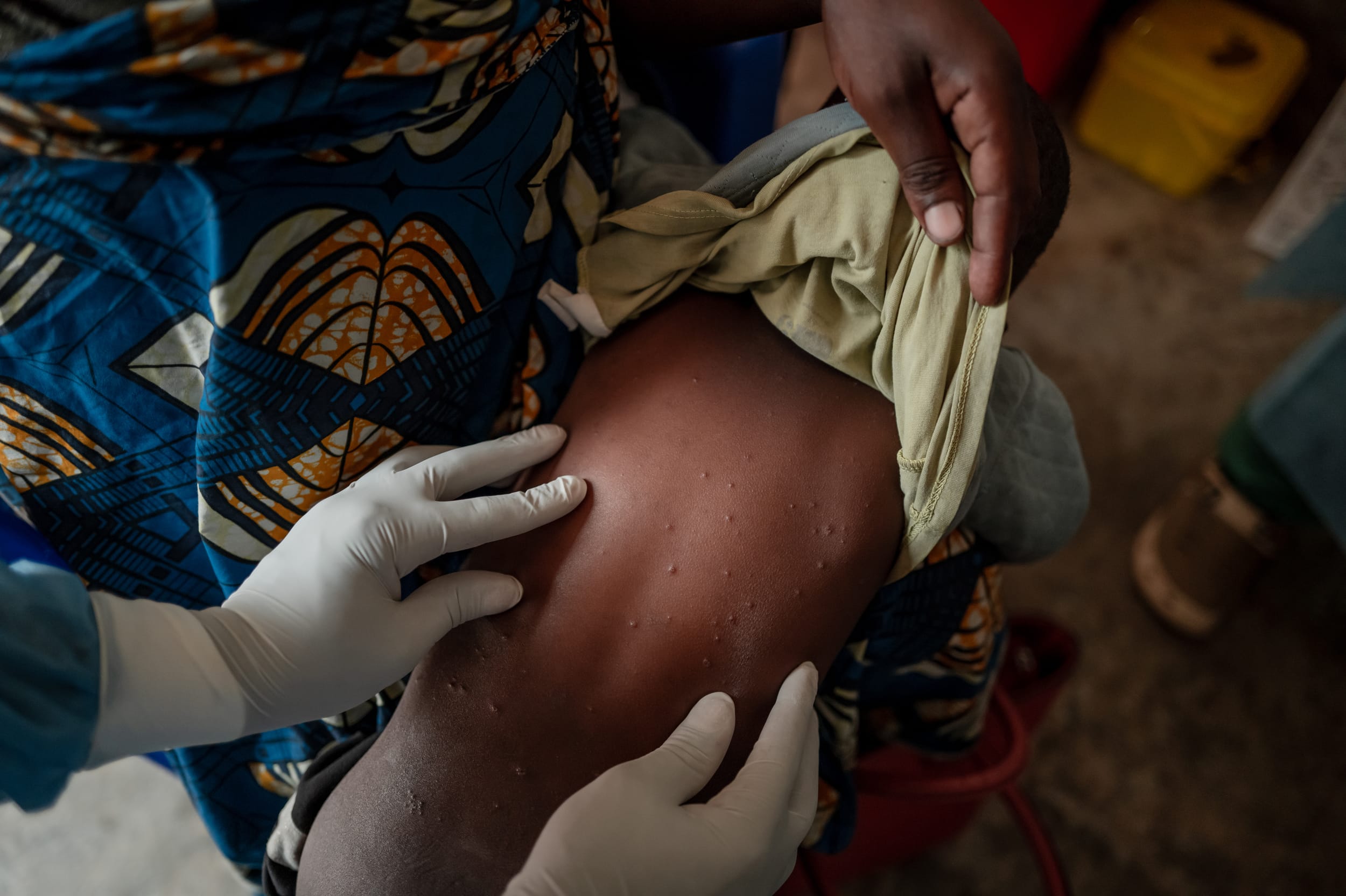In the Democratic Republic of Congo (DRC), a new, more infectious strain of mpox has already killed nearly 600 people this year – many of whom are children younger than 15. Roughly 1,000 new cases a week are being identified, which could be a conservative estimate since many are likely not being tested.
As part of the USAID-funded Global Health Security Program, the Johns Hopkins Center for Communication Programs is ramping up a campaign to help communities prevent, detect and contain the outbreak. The World Health Organization and the Africa Centers for Disease Control have recently declared the mpox outbreak, which is hitting DRC the worst, a public health emergency of international concern and a threat to continental security.
The mpox virus spilled over from animals and is spreading from human to human by close contact including sexual contact. Mpox is endemic in parts of western and central Africa, especially in DRC where it was first identified in 1970.
However, in 2022, mpox caused an outbreak across a range of countries where the virus had not been seen before. While it begins as a sudden onset of fever, headache and body pains, mpox can best be identified by tell-tale lesions that appear on the body.
The newest outbreak is different, with one estimate suggesting it has killed close to five percent of those infected. This mutant strain has spread to a number of countries across Africa and was recently identified in Sweden.
“Mpox is preventable,” says CCP’s Corinne Fordham, a program officer working on messaging. “It’s a combination of getting the word out as much as possible, and also really tailoring the messages. The messages that you’re going to give to, say, a mother who suspects her child has mpox are going to be very different than for a man at the end of the shift who’s debating engaging with a sex worker.”
A main message of the new campaign, which also includes information on symptoms, risk levels and the future introduction of a vaccine: If you suspect you have been exposed to someone with mpox, seek medical care at a facility immediately.
A rural mining town of Kamituga in the Sud Kivu province has become a global epicenter of mpox sexual transmission. In that setting, prevention messages have primarily targeted commercial sex workers and mine workers as they have become the most vulnerable and affected population.
The new campaign, which began in June 2024 in Sud Kivu, is hitting many angles and using several approaches and various communication channels.
There are public service announcements on radio and TV, and broadcast interviews with experts with the aim of increasing knowledge of the disease, fostering public trust and promoting preventive measures, including avoiding dead animals, handwashing, avoiding contact with people who show symptoms and reminders not to touch clothes, sheets and other personal items used by those with symptoms.
Billboards have been erected in public areas of the hot zones. Congolese people can also dial a phone number where an interactive voice response system provides more information on the outbreak.
“Man on the street” interviews are being recorded to be shared on social media. There is community engagement, including peer educators for sex workers, and community influencers engaging in dialogues that focus on awareness and prevention of mpox (and when to seek medical care).
“CCP is using social and behavior change approaches that are essential in bridging the gap between guidelines and actual behavior change,” says Shannon McAfee, the team leader for CCP’s DRC work. “While messaging advises avoiding contact with anyone affected by mpox, this poses an incredibly difficult challenge for parents of young children.”
For example, she says, the team is committed to developing practical, actionable solutions that enable mothers to care for and show love to their sick children while prioritizing safety. This demands ongoing reevaluation and updates to guidance to address these complex and sensitive realities.
While most of the previous endemic mpox cases had been concentrated in rural and forest areas, the new outbreak is affecting more urban districts in Sud Kivu province, which neighbors Tanzania and Burundi, and has now reached DRC’s capital city of Kinshasa, home to more than 17 million people. This spread to such a highly populous city is exactly what health officials were worried would happen. For now, the 12 cases reported so far in the capital city are concentrated among commercial sex workers in one neighborhood.
“Containing a disease like mpox is significantly easier in rural areas,” says CCP’s Didier Kangudie Mbayi, chief of party for the CCP-led Breakthrough ACTION project. “However, once it reaches urban centers, containment efforts become far more complex due to the dense population and the sexual transmission of the new strain, which can facilitate rapid spread.”
There are also growing concerns as a new school term begins this week.
Even though there are approved mpox vaccines, they have yet to be introduced in DRC as a medical countermeasure during this new outbreak. Since there are plans to introduce vaccines to high-risk people this fall, Breakthrough ACTION is currently collecting data on the perception of the disease and vaccine acceptance amongst Congolese in order to adjust its communication strategy and campaigns
“In preparation of the launch of a targeted mpox vaccination campaign,” Mbayi says, “we need to work with communities to combat misinformation and disinformation as well as foster vaccine acceptance.”





